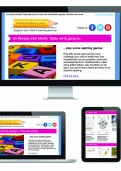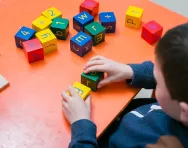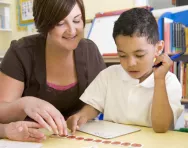Important update from TheSchoolRun
For the past 13 years, TheSchoolRun has been run by a small team of mums working from home, dedicated to providing quality educational resources to primary school parents. Unfortunately, rising supplier costs and falling revenue have made it impossible for us to continue operating, and we’ve had to make the difficult decision to close. The good news: We’ve arranged for another educational provider to take over many of our resources. These will be hosted on a new portal, where the content will be updated and expanded to support your child’s learning.
What this means for subscribers:
- Your subscription is still active, and for now, you can keep using the website as normal — just log in with your usual details to access all our articles and resources*.
- In a few months, all resources will move to the new portal. You’ll continue to have access there until your subscription ends. We’ll send you full details nearer the time.
- As a thank you for your support, we’ll also be sending you 16 primary school eBooks (worth £108.84) to download and keep.
A few changes to be aware of:
- The Learning Journey weekly email has ended, but your child’s plan will still be updated on your dashboard each Monday. Just log in to see the recommended worksheets.
- The 11+ weekly emails have now ended. We sent you all the remaining emails in the series at the end of March — please check your inbox (and spam folder) if you haven’t seen them. You can also follow the full programme here: 11+ Learning Journey.
If you have any questions, please contact us at [email protected]. Thank you for being part of our journey it’s been a privilege to support your family’s learning.
*If you need to reset your password, it will still work as usual. Please check your spam folder if the reset email doesn’t appear in your inbox.
Explaining special needs to children

Children with special educational needs may need extra help at school because of a range of issues, including emotional and behavioural difficulties such as ADHD and ADD, difficulties with speech and language, problems with how they relate to and behave with other people, or sensory impairments. These needs are a normal part of classroom life, and according to an Ofsted report which was published last year, around 1.7 million schoolchildren in England are regarded as having some form of special need.


Start a unique learning programme!
- Weekly programme for each school year
- Worksheets sent direct to your inbox
- Keeps your child's learning on track
However, it can be confusing for children if they see one of their peers being treated differently, and explaining that some children have needs different to their own that must be met can be tricky. So if your child asks you why another child in their class is getting extra attention for their behaviour, or why a classmate needs special equipment and extra adult support at school, what do you say?
Differences are a positive part of life
SEN consultant, trainer and author of SEN: A Parent’s Guide, Vicki Dawson, says that it is very important that parents teach their children that differences are a positive part of life. “If children ask questions about why other children are different it is important to acknowledge that we are all different,” explains Vicki. “Parents have an important role to play in teaching their children that differences can be a positive.”
Emphasise to your child that we all have different talents, and that some children may have trouble learning some things, but that they may be very good at other things.
If children are being treated differently in the classroom Vicki Dawson advises that a parent should explain that the teacher is in control and is doing their best for every child. “Reiterate that the teacher is very clever and knows how to handle all the children in that class differently to teach them to behave nicely,” says Vicki.
Also, Vicki says that answering children’s questions, no matter how difficult they may be, is essential to promoting acceptance of their peers.
Set good examples
Parents of a child with special educational needs may also find that they are the subject of questions from their child’s classmates. Forum member and mum JacquiL explains her son’s ‘differences’ by saying that his brain works in a unique way. “I always tell children that his brain is 'wired' differently to theirs, so that while they can learn things like reading, his brain won't let him do that as it would rather he climbed a tree!”








